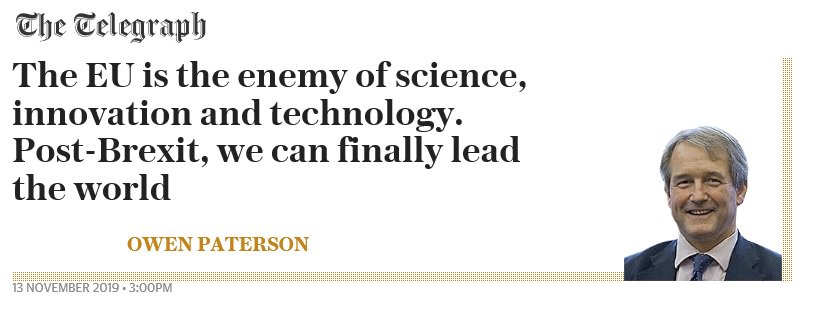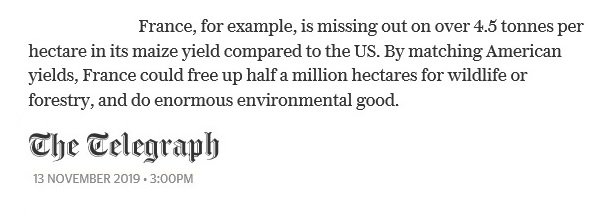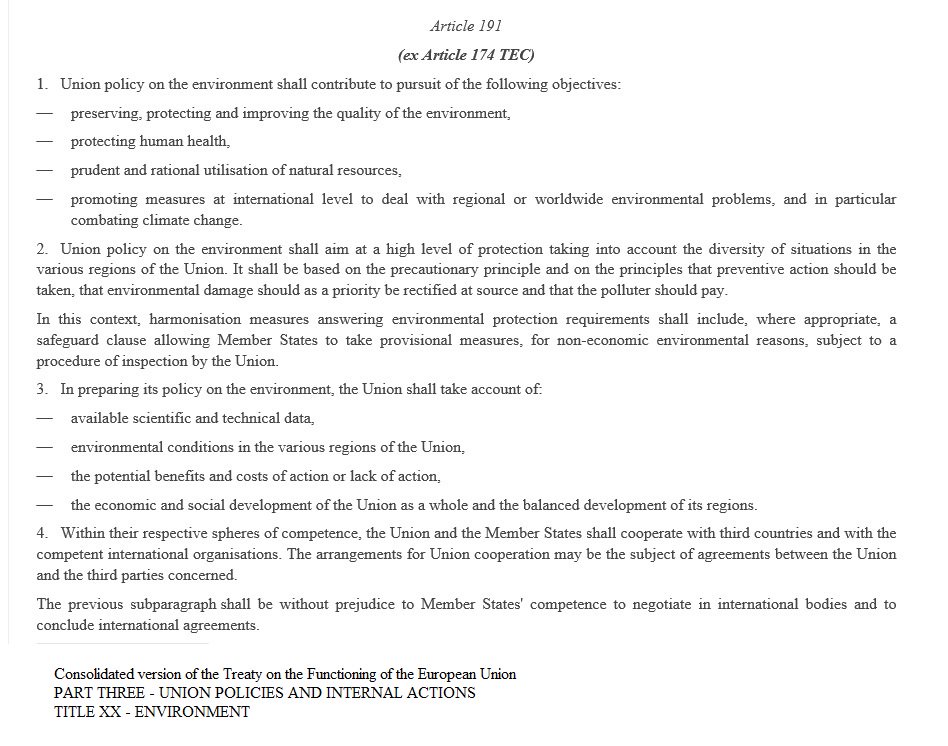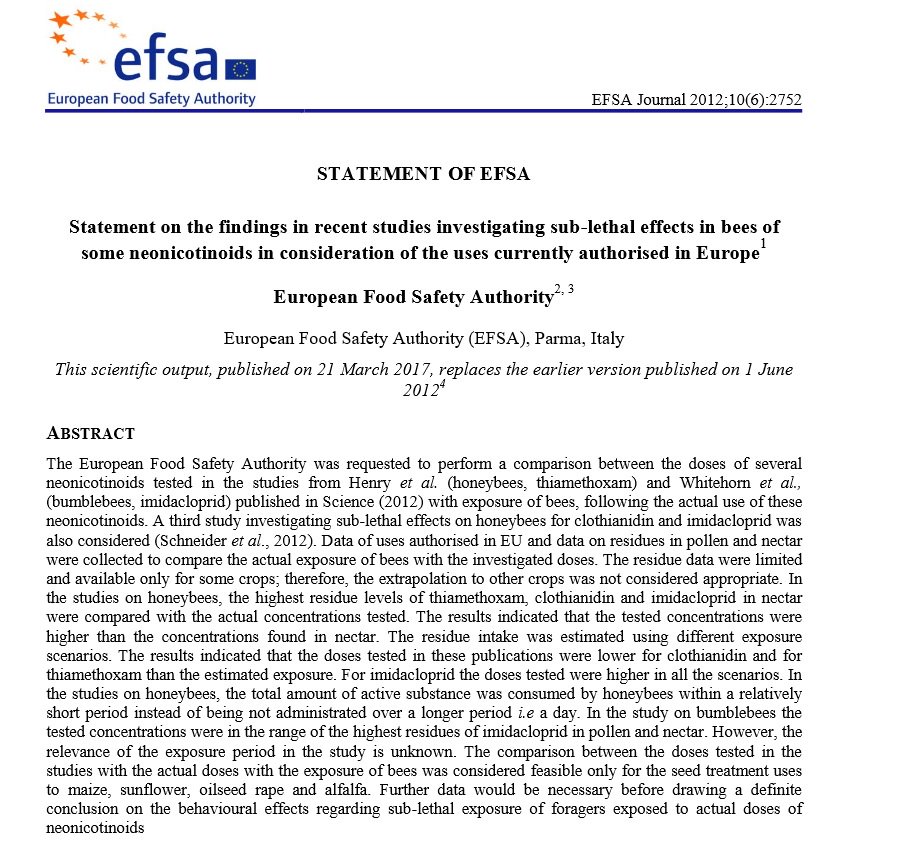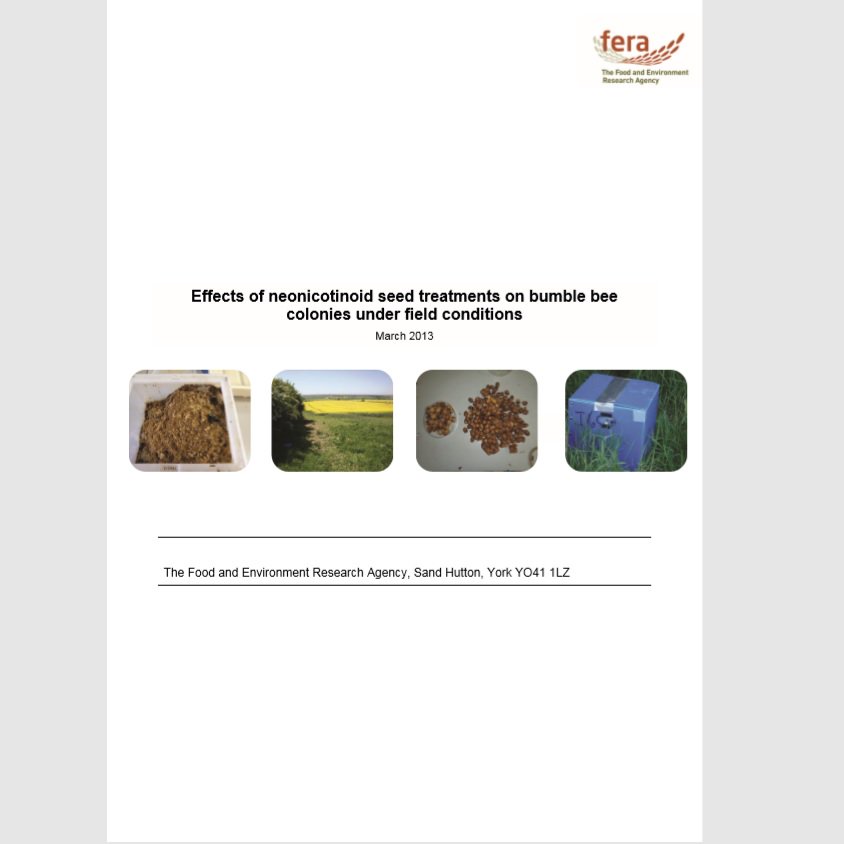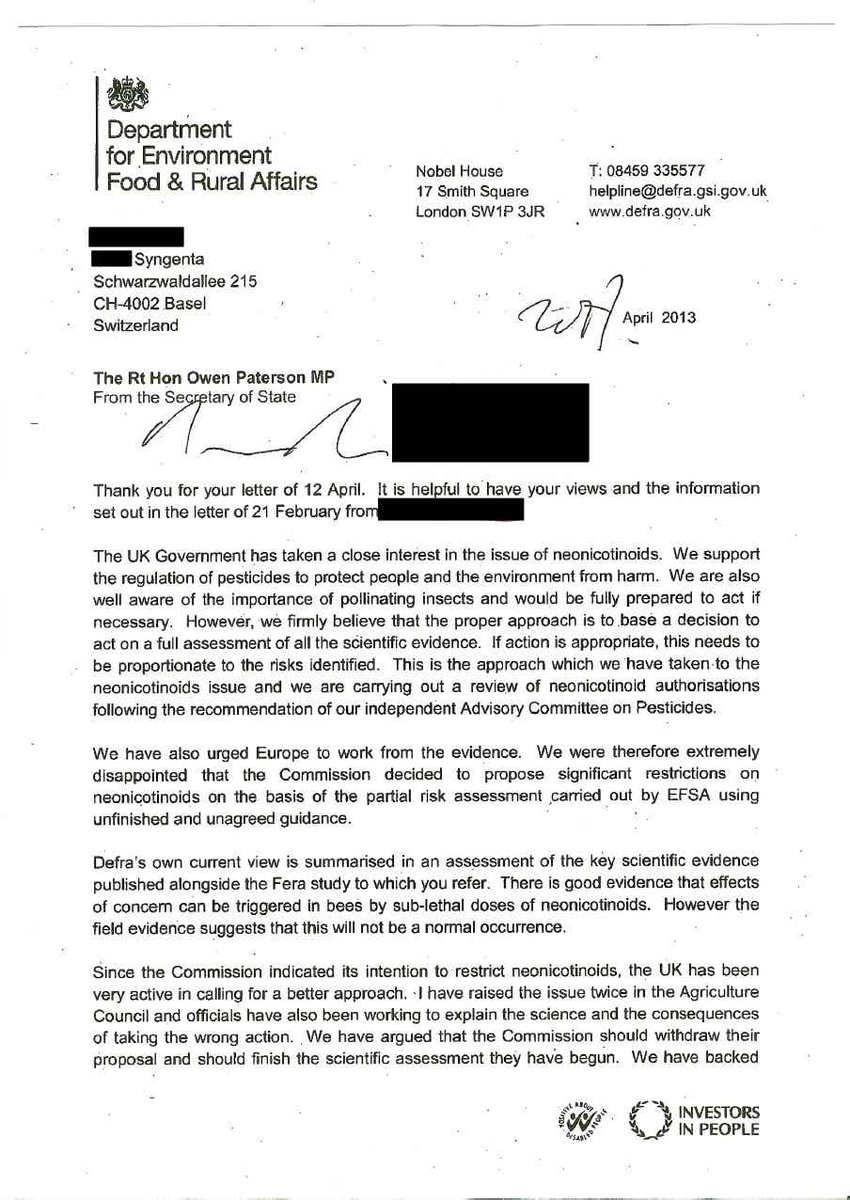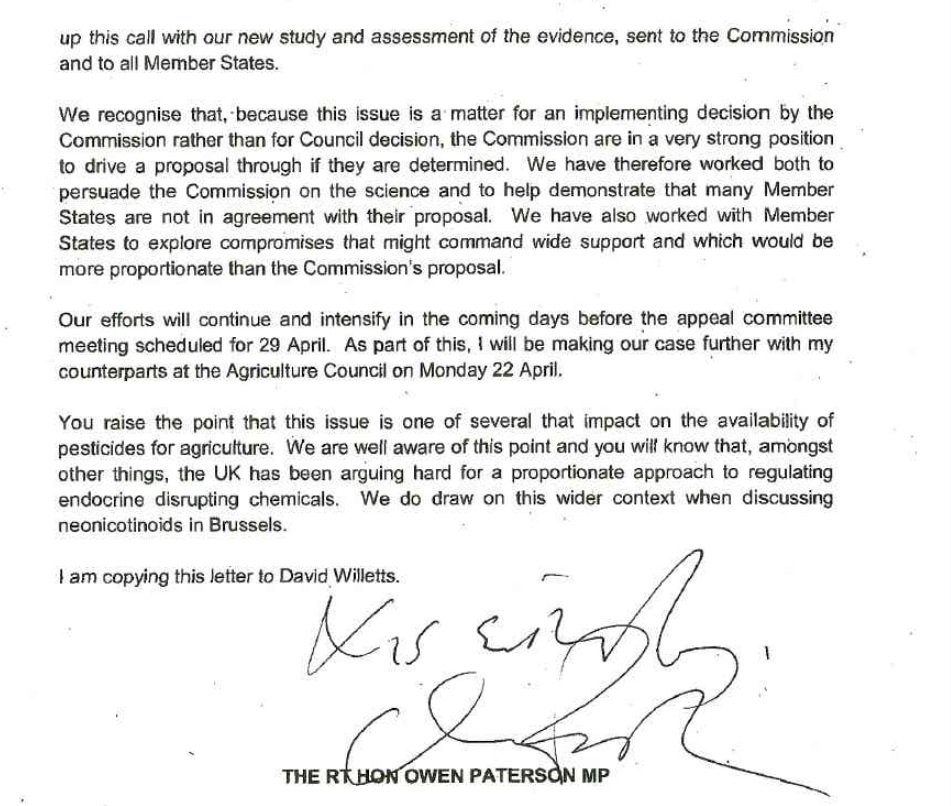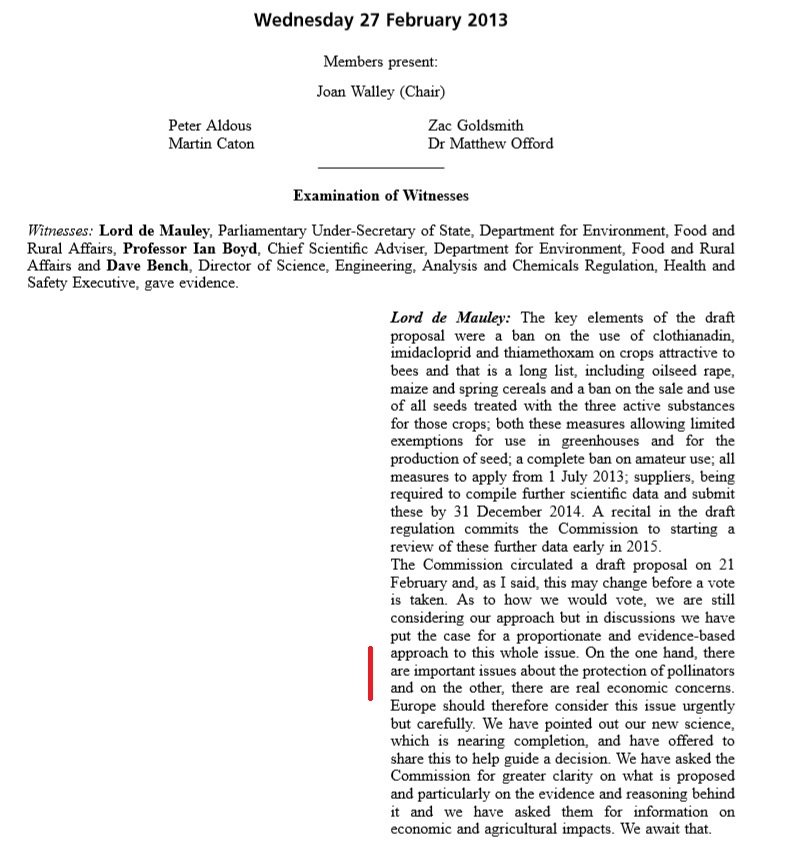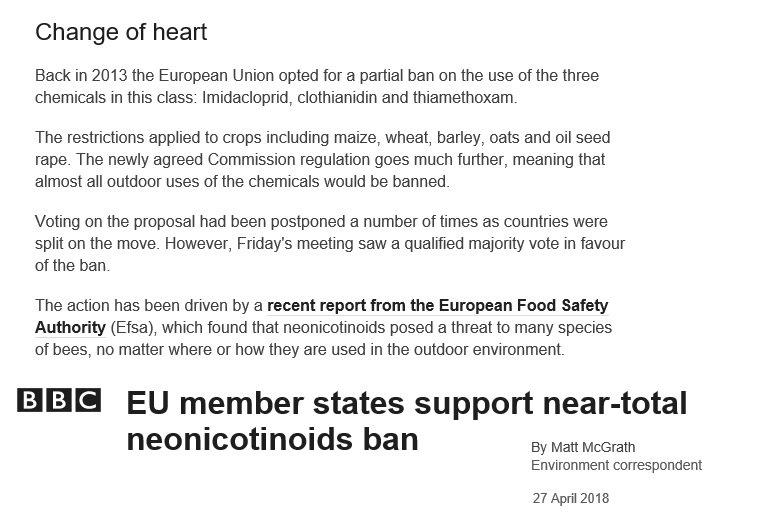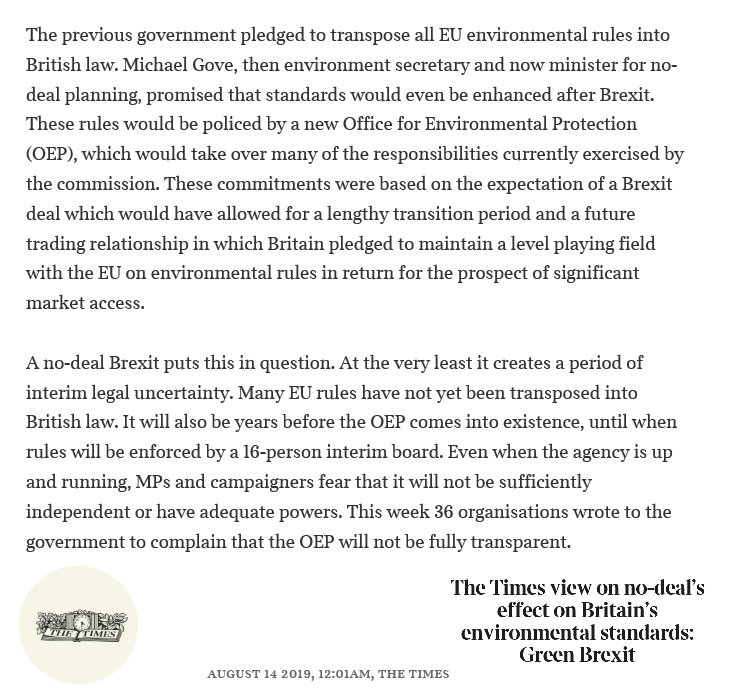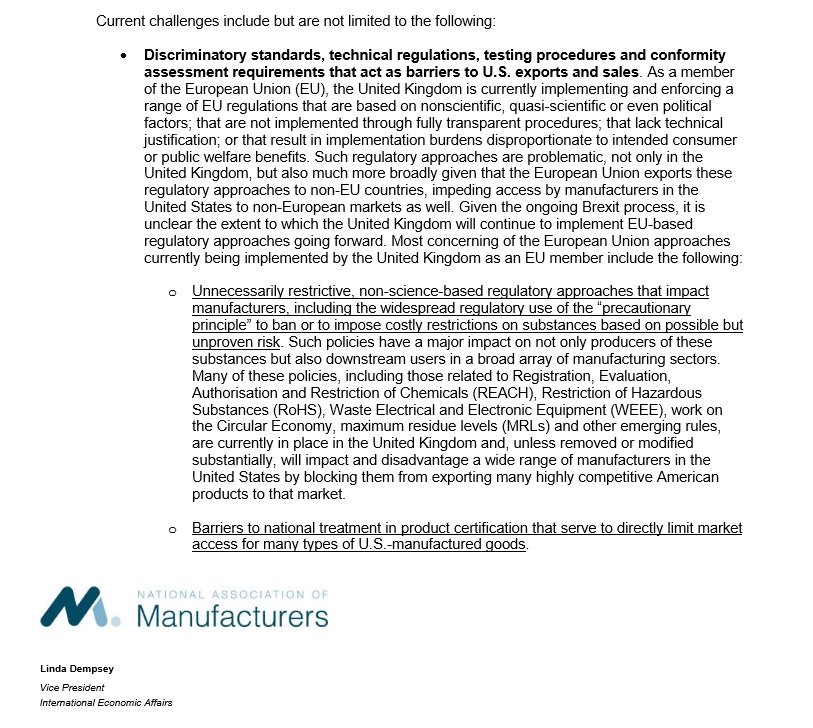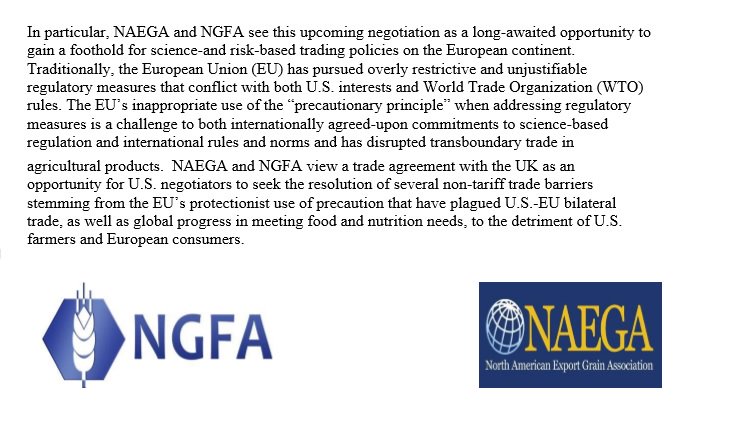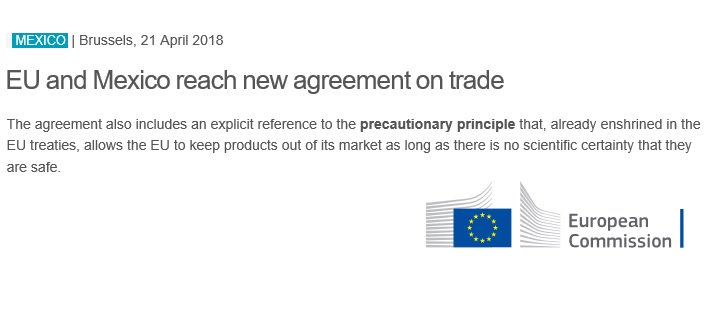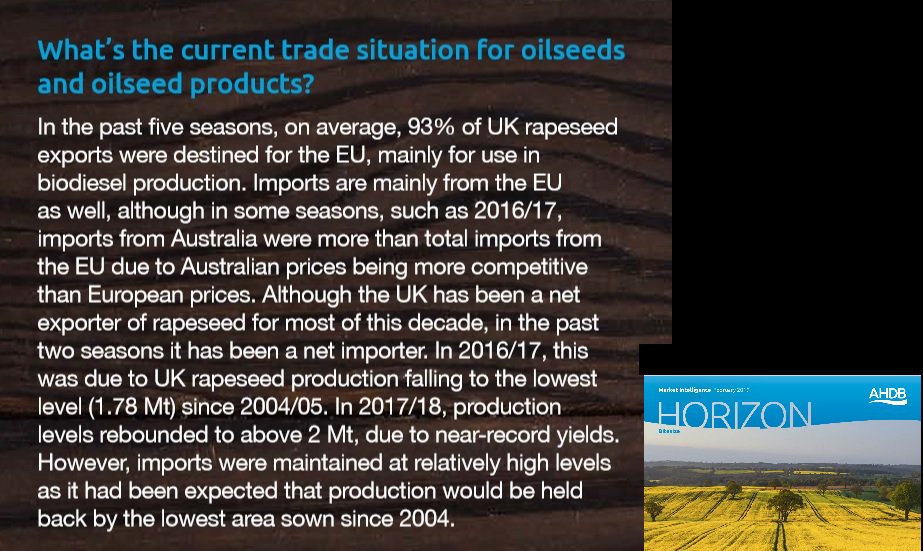1. Since we’re having a general election, let me show you how a politician argues we should be removing environmental and food standards, but without actually saying so.
2. This is Owen Paterson arguing in the Telegraph that the EU is the enemy of science and the UK can lead the world in innovation post-Brexit.
3. The main thing to remember about Owen is his arguments don’t change. Take, for example, “Museum of world farming”
4. Here is Owen in 2015 talking about how the EU is becoming the “Museum of world farming”.
6. Here is Owen in the same 2015 speech talking about how France has been overtaken in the production of maize.
7. So we know that when Owen Paterson says the EU is the ‘enemy of science’ in the title, one of the things he is actually referring to is the precautionary principle that ensures that our water is almost completely free from pesticide.
8. The precautionary principle is complicated, but basically it can be used to decide policy on something that could be dangerous but there is insufficient evidence to say either way.
9. One of Owen’s argument in 2015 was about the EU’s handling of Neonicotinoids. With agriculture being dependant on pollinators, it& #39;s a good example.
11. But it& #39;s nothing new. The link to Neonicotinoids and Bee poisoning was cited as a possible reason for a Bee Colony Collapse Disorder when the EU began research on increasing incidents in 2008.
12. In April 2012, the European Commission asked European Food Safety Authority (EFSA) to review the risk associated with the use of the neonicotinoid with regard to Bees, they published their results a month later.
13. In response to this, Defra produced a report claiming there was no need to act because there was no ‘unequivocal’ evidence of serious implications.
This is absolutely not how the precautionary principle is supposed to work.
This is absolutely not how the precautionary principle is supposed to work.
14. Then in January, the EFSA reported that there were risks, and this would mean a decision would have to be made in the EU on whether, or not, to invoke the precautionary principle.
15. By then Defra were working on a study that their chief scientist said would resolve it “one way or the other”. One which would lead to the notorious FERA report.
16. It’s the FERA report, and a new Defra study, that Owen Paterson cited in his letter to agrochemical company Syngenta, arguing that they were going to intensify their lobbying in the EU to stop the ban on Neonicotinoids.
17. The choice not to ban them came from balancing the risk to the pollinators with the economic concerns, according to Lord de Mauley, the Parliamentary Under-Secretary of State…and, I believe, Barley farmer.
18. Which was NOT consistent with the respective EU regulation which states in terms of authorisations “the objective of protecting human and animal health and the environment should take priority over the objective of improving plant production.”
19. There was finally an EU vote in March on the issue, and the UK abstained citing the need to review the FERA report. It was a report which has since been described as “fundamentally flawed” by the House of Commons Environmental Audit Committee.
20. After failing to get the necessary number of votes for a complete ban, the European Commission opted for a 2 year partial ban. Something which then evolved into a near full ban in 2018 after years of additional research.
21. A ban that our government supported because the “scientific evidence now suggests the environmental risks”. They also said they would maintain the ban post-Brexit.
22. The first concern is that our government clearly wanted to bend the standards.
The plan after Brexit is to have standards policed by an organisation that is expected to take years to establish, but this still leaves questions around its independence, and its ability to act.
The plan after Brexit is to have standards policed by an organisation that is expected to take years to establish, but this still leaves questions around its independence, and its ability to act.
23. The next concern is, it’s clear that the precautionary principle may slow down the adoption of the latest technology, but it does it in the interest of the environment. That is both animals, plants, and that means our long term economy. Will the UK choose to scrap it?
24. But Owen Paterson doesn’t mention this trade-off when he talks about the exciting new world of leading in technology, and while he may not be Secretary of State for Environment anymore, he isn’t the only one who is pushing for us to scrap the precautionary principle.
25. In terms of lobbyists in the US, they want the UK to drop the precautionary principle to improve their access to our market.
26. And it’s not just US lobbyists. Next year the government is going to be under intense pressure to reduce their environmental standards to allow our farms to compete with the US agriculture that could flood our market.
27. And if the government does drop its standards, it will almost certainly be sold as an improvement to our standards with claims it enhances transparency, accountability, and clarity.
28. But it’s not that simple because our biggest market is also suffering, and if we drop our standards just to compete with the US, the EU is going to have a problem with that too.
29. The EU can attempt to put a Precautionary Principle clause, something which the EU has only ever negotiated in the EU-Mexico deal, and it that can’t be accepted, or doesn’t offer enough protection, then we’re back to good old fashioned tariffs.
30. With 93% of our rapeseed exports going to the EU, for example, it could be a matter of losing our biggest export market, or failing to compete in the domestic market.
That would be a lose-lose.
That would be a lose-lose.
31. Environmental standards are a major deal for both the US and the EU, and when the government moved those standards to the political declaration and changed ‘adequate’ to ‘appropriate’, they set up a major fight between the EU and the US, where whoever wins, the UK loses.
32. This is one of the reasons why I believe staying in the EU is a good idea, but even if you don’t want to stay in it, it’s best to very wary of politicians who talk about embracing technology in agriculture.
Often, they are not giving you the full picture.
/End
Often, they are not giving you the full picture.
/End

 Read on Twitter
Read on Twitter